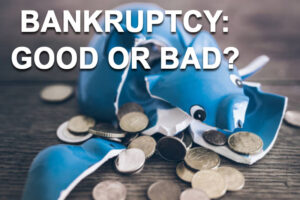Alright, let’s cut to the chase. What’s up with your credit score deciding how you live your life?
You want a house, a car, or maybe a credit card that doesn’t scream “emergency only” — your credit score sits in the judgment seat, giving you the thumbs up or the big red NOPE.
Let’s unpack what swings your credit score from hero to zero and how you can tweak the system to your advantage.
Good Credit, Bad Credit. What’s the Big Deal?
First off, what’s a good credit score?
If you’re rocking anything above 670, you’re in the “good” territory.
Hit 740 or higher? Welcome to the great expanse of ‘very good’ and ‘exceptional’.
But if you’re dabbling down in the 580 and lower range—brace yourself—lenders see you as a high-stakes gamble.
Why Should You Care?
Why bother? Because bad credit is more than just a number.
It’s the difference between getting that shiny new car with the negligible interest rate and being stuck with a clunker that guzzles more money in interest than gas.
It’s about saving thousands on home loans, feeling confident walking into job interviews, and not sweating when setting up utilities.
It’s about saving thousands on home loans, feeling confident walking into job interviews, and not sweating when setting up utilities.
Pretty major, right?
What Makes Your Credit Score Dive Off a Cliff?
- Missed Payments. That one time you forgot a payment? Yep, it mattered. Payment history makes up a whopping 35% of your score!
- Capacity Used. Maxing out cards is a no-go. High balances scare creditors. This factor kicks in at 30% of your score calculation.
- Length of Credit History. New to the game? The longer your credit history, the better. This slices in at 15%.
- Types of Credit. Diversity in your accounts boosts your score. Don’t put all your financial eggs in one basket.
- Hard Inquiries. Applying for new credit isn’t free of consequences. Too many applications look desperate.
So, How Can You Polish Your Credit to Gleaming?
- Pay On Time, Every Time. Automate your payments. No excuses.
- Watch Your Credit Utilization. Keep your card balances low. Below 30% of your limits is the sweet spot.
- Hold On to Old Cards. Don’t close your old accounts; they’re proof of your long, mostly-happy history with credit.
- Mix It Up. A healthy combo of credit card, mortgage, and auto loan accounts jazzes up your credit file.
- Limit New Credit Applications. Only apply when necessary. Desperation isn’t a good look.
Are There Quick Fixes?
Here’s the kicker. None.
Building or repairing credit takes patience and discipline. Think of it as training for a marathon, not a sprint.
Sure, there are credit repair services that promise quick fixes, but genuine changes take genuine effort.
Is Good Credit Really That Important?
Imagine a world where you’re not sweating the credit score on a loan application because you know you’re golden.
That’s a world where you’ve saved money on interest, snagged rewards on credit cards, and even boosted your chances at a great job.
Totally worth the effort.
Your credit score isn’t just a number. It’s a gateway to your financial freedom.
Your credit score isn’t just a number. It’s a gateway to your financial freedom.
Start monitoring your credit like it’s your daily calorie intake.
Challenge inaccuracies in your credit reports. Pay down balances, keep those old accounts open, and diversify your credit mix.
It’s Your Financial Health. Own It.
Remember, a good credit score is your ticket to the finer things in life, financially speaking.
No one’s perfect and slips happen, but today’s a great day to start turning things around.
Get disciplined, stay vigilant, and watch as those three little numbers open up a world of possibilities.
Who’s ready to boost their financial wellness to epic levels? You are!









